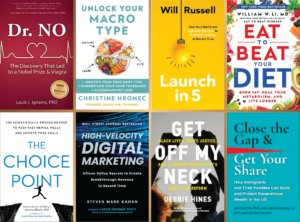Find Your Ideal Reader

Share
Not all books are for everyone or every book has an ideal reader.
I don’t care how popular you think your book could be, it will never be for everyone. And so, understanding your ideal reader and tapping into their emotional life will help you target your book to the right people in a way that makes them want to buy your book.
And once they have your book, the fact that you’ve pinpointed who your ideal reader is will help you frame your message so that they’ll be thinking, “Wow, it’s like this author is in my head. It’s like they know what I’m thinking and feeling. It’s like they know me.”
An ideal reader is really two things: It is the person who could potentially benefit the most from your book and the person that you would be the most interested in establishing some other kind of relationship with beyond the book.
If you own a business, your ideal reader might be the same person as your ideal client or ideal partner. If you run a nonprofit, it might be your ideal donor. Or if your book is related to your mission or some initiative that you’re passionate about, your ideal reader is the person most likely to join your efforts.
Many aspiring authors don’t even think about this before they start writing, but they should. If you don’t, chances are you’ll miss your mark. If your book isn’t addressing the specific concerns of a particular person, it won’t speak to anyone.
So, how do you find your ideal reader?
When people first attempt this, I notice two common mistakes…
The first is to focus on demographic characteristics. I can’t tell you how many times I’ve asked my clients who they think they’re ideal reader might be and they respond with: “women in their 40s,” “young professionals in the tech industry,” “retirees with a lot of savings,” etc. Don’t get me wrong: demographics do matter. But only to an extent. And demographics aren’t what make your ideal reader buy your book.
What matters more when determining your ideal reader is to get attuned to their inner life and how your book relates to their emotional drivers. You need to determine what they value, the things that are most important to them, what matters most. Because at the end of the day, regardless of their gender, age, sexual orientation, anything, they’re going to make the decision to buy that book based on their values and what moves them. Your ideal readers will share the same values (as are relevant to your book), regardless of their age, where they live or how much money they make.
For example, in my own business, every single person who ends up working with us has the same mindset that they enjoy success, financially and otherwise, and yet their primary motivator is to change the world so that they leave it better than they found it.
The second mistake is thinking they need to invent some kind of fictional “ideal customer avatar,” a.k.a. the “cartoon version.” This approach will pull your focus towards the superficial, stereotypical emotional traits of your ideal reader and prevent you from gaining deeper insight that would allow you to understand them as a multi-dimensional human being.
Ultimately, you have to determine what your ideal reader really wants out of life and what’s in the way of them having it.
I recommend you think about your ideal reader as a specific person on this earth: someone who you believe represents most accurately the best person to read your book. Ideally, this is a person you’ve met, but it doesn’t have to be. It could be a public figure that you had some opportunity to get a sense of, say through seeing them interviewed or otherwise.
Imagine you’re a conversation with them where you ask questions that will uncover what they value, what they want, what they think is in the way, and so on…
When you do this from a quiet, centered space in yourself, you can tap into all the unconscious intel you already have on this person. Because anytime we encounter another human being, we are picking up all kinds of information on their inner world, we just don’t usually pay attention to it.
I know what you might be thinking: why does any of this matter?
It matters. It matters a lot because no book is for everyone. And when you write a book specifically for your ideal reader, man, that’s hard to beat.
To read more about Book writing and finding correct audience you can read Robin Colucci other blogs.



